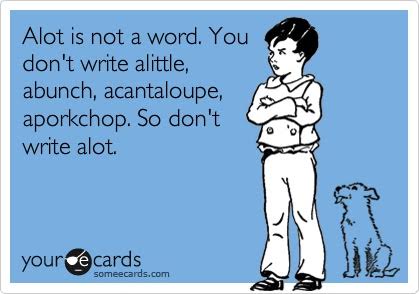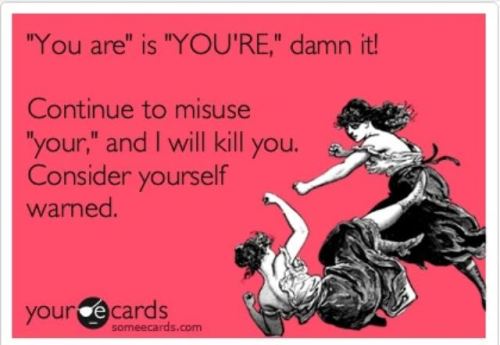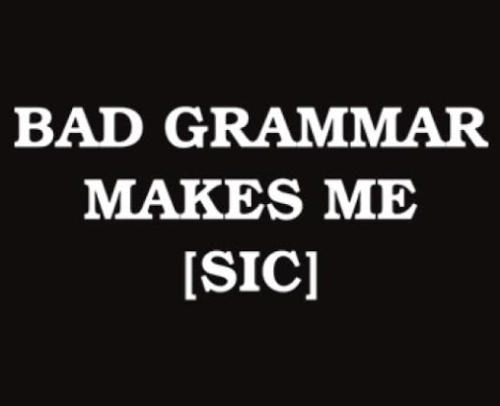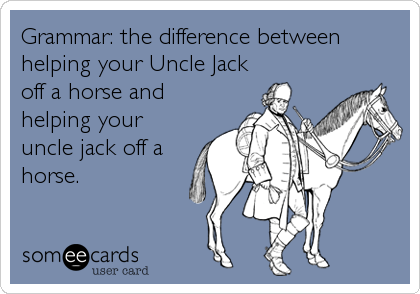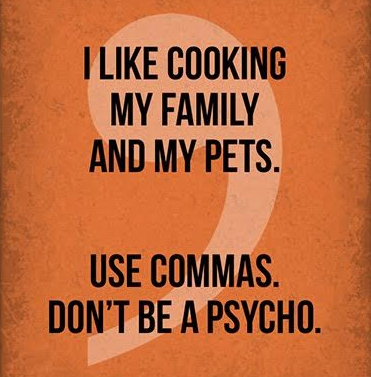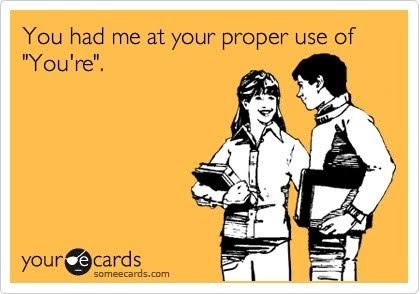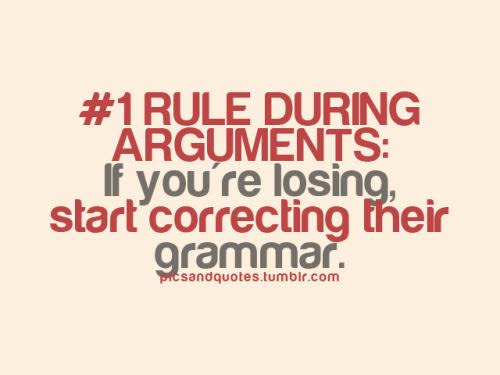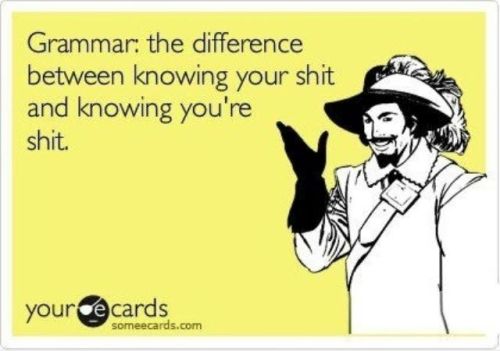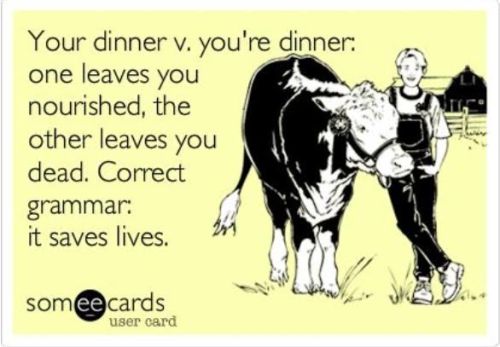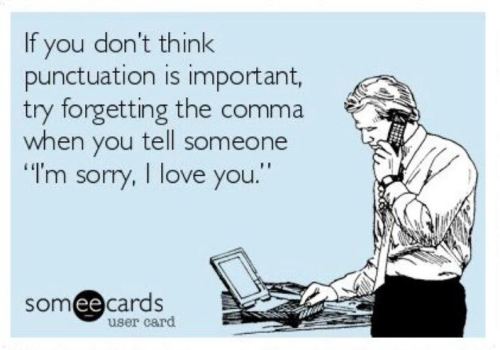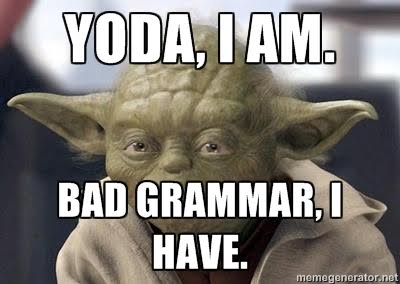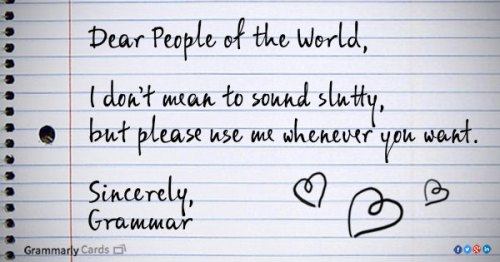There, they’re, their.
March 4th is National Grammar Day!
I know you’re all as excited as I am!
Just think – a whole day dedicated to proper use of grammar!
Grammar Day was created in 2008 by Martha Brockenbrough, founder of the Society for the Promotion of Good Grammar, to promote awareness and understanding of proper grammar.
For the logophiles among us, the Global Language Monitor estimates the number of words in the English language to be approximately 1,025,109.
That’s a lot of words one could possibly mess up.
That’s right.
A lot.
Not alot.
They’re two separate words.
Two!!!
In honor of National Grammar Day, let’s have some fun with grammar, shall we?
(I rest my case.)
(I completely understand. I feel equally as passionate about this mix-up.)
(Hahaha! Get it? Oh, never mind…)
(I’m sorry… and you’re welcome.)
(People who use commas properly are statistically less likely to be raging psychopaths. Need I say more?)
(Off too [sic] funny we go!)
(Never underestimate the powerful effect of using proper grammar!)
(Sure, it’s a cheap shot, but it can be highly effective. Give it a try!)
(Proof that it helps tremendously to be able to distinguish between homophones.)
(The difference here may be subtle. On second thought, no. It’s glaringly obvious. Get your words straight if you want to avoid becoming dinner!)
(Irony at its absolute finest.)
(Likewise, “I’m sorry I hate you” could also benefit from a properly placed comma…)
(Yoda is the only creature permitted to speak in such a grammatically disturbing manner. This is due solely to his unparalleled wisdom.)
(Grammar is good! Grammar is your friend! Please, for the love of God, use grammar!)
Homophones seem to cause confusion for a surprisingly large chunk of the population.
For instance:
its/it’s, to/too/two, there/their/they’re, than/then, where/were, whose/who’s, apart/a part
Yes, these sets of words do sound identical.
That’s because they’re homophones…
Not because they’re words that share the same meaning and can be used interchangeably at one’s discretion.
Sorry, but it just doesn’t work that way.
Oh, and let’s talk about real words put together to form imaginary phrases.
Would of, should of, could of.
Uh…
Hello?!?
These phrases don’t make any sense!
Do you know why?
It’s because they don’t exist!
At least, not in the world of proper grammar.
(Would’ve, should’ve, and could’ve are the contractions for would have, should have, and could have.)
Now go impress someone special with your inoffensively impeccable grammar skills!
~Happy Friday, friends! And Happy National Grammar Day, for those of you who value proper grammar as much as I do. Have a phenomenal weekend!~
